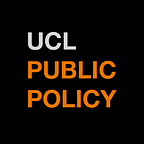UCL Gender and Tech Lab’s Research Visit “Down Under”
In this blog entry, Dr Nikolaos Koukopoulos, Research Fellow in Technology-Facilitated Abuse at UCL Computer Science, summarises the highlights of a recent research trip to Australia and points to the benefits of international scientific knowledge exchange.
International collaborations are incredibly important for advancing research and policy engagement. They allow for the exchange of ideas and best practices and the maximisation of scientific impact and outputs. Therefore, spending a month in Australia as a Visiting Scholar at the University of Melbourne was a significant opportunity. The trip was part of Associate Professor Leonie Tanczer’s UKRI Future Leaders Fellowship on “Revolutionising Online Safety,” which I am a team member of. Professor Heather Douglas kindly hosted us at the University of Melbourne.
Australia is a hub for online safety. The purpose of the visit was to foster collaborations with the thriving community of Australia-based researchers and policymakers, disseminate our work, and reflect on the relevance of Australia’s ongoing activities for the current technology-facilitated abuse (‘tech abuse’) landscape in the UK. Based at Melbourne Law School, we had the chance to connect with academic researchers and teams from different departments across the university, including Law, Computer Science, Social Work and much more.
During our visit, we held a full-day Tech Abuse Workshop, which was attended by leading scholars, researchers, practitioners, and policymakers on tech abuse in Australia. At the event, we heard from representatives of Australia’s eSafety Commissioner about the impressive work they have been doing to protect the citizens of Australia from online harm. Ella Serry, Manager of International Engagement and Laura McVey, Assistant Manager — Gender & Tech, discussed the organisation’s efforts to understand and address online abuse of women within work environments and highlighted their work to protect the Australian citizens from child cyberbullying, adult cyber abuse, image-based abuse, and illegal/restricted content. Furthermore, Ella discussed eSafety’s progress in performing regulatory functions. She presented their ‘Safety by Design’ approach, including initiatives co-developed with industry partners to address technological pitfalls exploited by tech abuse perpetrators.
Description: This video summarises the outcomes of our recent research visit and features clips from our Tech Abuse Workshop and interviews with policy officials and support sector representatives.
In an additional meeting held with eSafety representatives on the day following the event, we learned about eSafety’s efforts to regulate the online environment and their upcoming plans, including a campaign to help the public understand tech abuse and a tech support service for cases of domestic and family violence. With the UK having recently put the Online Safety Act into law, eSafety’s work made us reflect on the complexities of navigating the online harms field and exercising regulatory powers, considering Ofcom’s similar remit, but also the necessity of increasing tech abuse awareness and providing specialist services for victim-survivors of tech abuse.
During the Tech Abuse Workshop, we also presented preliminary findings from our UKRI-funded Delphi study (more on this method here) on tech abuse definition, conceptualisation, and measurement, with the study findings suggesting a broader — rather than narrower — understanding of this evolving phenomena. During the workshop, we coordinated group exercises which emphasised the diversity of this area of work, the different understandings of what constitutes tech abuse, as well as the difficulty of generating an all-encompassing definition with practical value. Although we did not reach an agreement on a tech abuse definition by the end of the workshop, the discussion certainly allowed us to consider the difficulty but also the necessity of this undertaking.
Description: This video is a recording of our MAEvE workshop in which we share preliminary findings of our global Delphi study in which we examine the “boundary questions” that tech abuse creates.
As part of our visit, we held an online webinar on Technology-Facilitated Abuse for the Melbourne Research Alliance to End Violence against women and their children (MAEvE) where we presented the aim and objectives of our UCL Gender & Tech Lab and our ongoing research. We also connected with the researchers from the ARC Centre of Excellence for Automated Decision-Making and Society (ADM+S) and were informed about their current research endeavours. We also spent a day at Monash University, hosted by Associate Professor Asher Flynn, where we connected with criminologists as well as members of the Monash Gender and Family Violence Prevention Centre. Additionally, we had the chance to visit Deakin University, hosted by Associate Professor Mary Iliadis and co-convenor of the Deakin Network Against Gendered Violence.
Towards the end of our visit, we attended Australia and New Zealand Society of Criminology’s (ANZSOC) Annual Conference, where Dr Tanczer featured in a keynote panel on Technology and Criminal Justice facilitated by Associate Professor Bridget Harris. At the same conference, I presented our work on conceptualising technology-facilitated abuse and our plans to create an online, publicly available database on tech abuse, which we hope will be an accessible source of knowledge of researchers, practitioners, and policymakers. Finally, I visited Adelaide and observed the Inaugural Meeting of the Child Sexual Abuse Reduction Research Network (CSARRN). The event brought key researchers and thought leaders from around the globe together to share their work on eliminating child sexual abuse, fostering new collaborations and developing unified solutions.
Overall, we really tried to make the most use of our trip and connect with as many relevant stakeholders in research, policy, and practice as possible, which we hope will not only benefit our research but our policy engagement in the UK moving forward.
